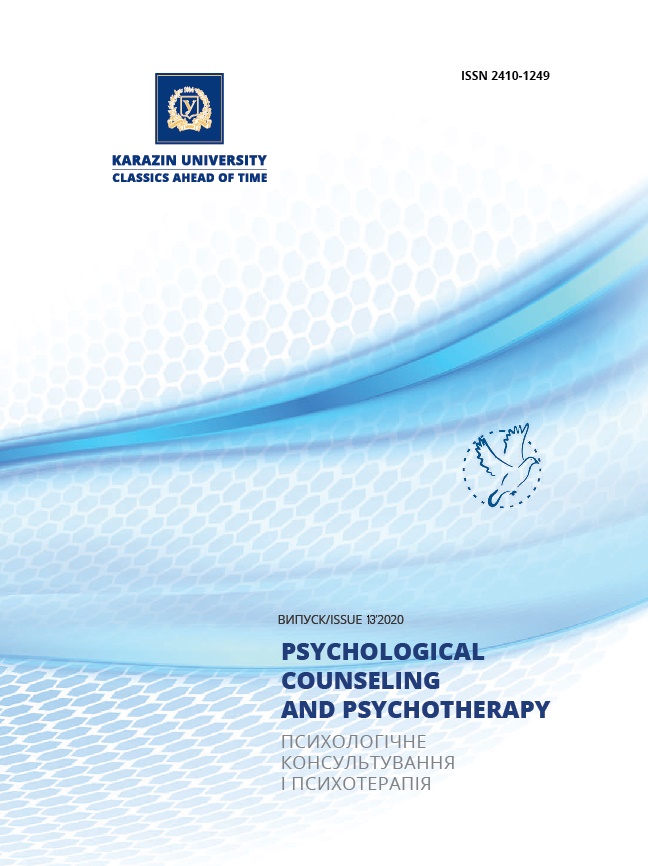CBT of Anxiety and Depressive Disorders in Foreign Medical Students
Abstract
The article discusses the use of cognitive-behavioral therapy in foreign medical students. It is well known thatdepression is the second most common disease in the world. The causes of depression are diverse. Different psychological schools see this disorder from different perspectives. Recently, we are increasingly seeing mixed anxiety-depressive episodes. Learning a medicine in a foreign language is an additional stress factor. Thus, the selected contingent needs a psychotherapeutic effect for adaptation. The article provides information on cognitive-behavioral therapy taking into account the gender characteristics of the contingent. In our opinion, cognitive-behavioral therapy is an optimal and short-term method of psychotherapeutic influence. Thus, a differentiated approach to the preparation of therapeutic programs based on the gender characteristics of anxiety-depressive disorder is effective and can be recommended for use with medical students.
Downloads
References
Vestbruk, D., Kennerli, G., Kirk J. (2014). Вступ у когнітівно-поведінкову терапію [Introduction to cognitive-behavioral therapy]. Lviv: Svichado.
Kozhyna, G.M., Markova, M.V., Marakushyn, D.I., Zelenska, K.O. et al. (2016). Комплексна система психопрофілактики розвитку станів дезадаптації у студентів перших років навчання [Complex system of psychoprophylaxis of development of maladaptation states in students of the first years of study]. Archiv Psyhiatrii. 22(4), 51-55.
Mishyev, V.D. (2004). Сучасні депресивні розлади: Керівництво для лікарів [Сучасні депресивні розлади: Керівництво для лікарів]. Lviv: Ms.
Napriyenko, O.L., Loganovskyi, K.M., Syropyatov, O.G. (2013). Нециркулярні депресії: монографія [Non-circular depressions: a monograph]. Napriyenko O.K. (Ed.). Кyiv: Софія-А.
Kholmogorova, A.B. (2011). Интегративная психотерапия расстройств аффективного спектра [Integrative psychotherapy for affective spectrum disorders]. Moscow: Medpraktika-M.
Chisholm, D., Sweeny, K., Sheehan, P. et al (2016). Scaling-up treatment of depression and anxiety: a global return on investment analysis. Lancet Psychiatry. 3(5), 415–424, https://doi.org/10.1016/S2215-0366(16)30024-4.
Cuijpers, P., Donker, T., Weissman, M.M. (2016). Interpersonal Psychotherapy for Mental Health Problems: A Comprehensive Meta-Analysis. The American Journal of Psychiatry. 173(7), 680–687. https://doi.org/10.1176/appi.ajp.2015.15091141.
Diagnostic and statistical manual of mental disorders: DSM-5. 5th ed., (2013).
Ingram, R.E., Miranda, J., Segal, Z.V. Ingram, R.E. (1998). Cognitive vulnerability to depression. NY: The Guilford Press.
Morrison, N. (2001). Group cognitive therapy: treatment of choice or suboptimal option. Behav. Cogn. Psychother. 29, 311-332.
Rasing, S.P.A., Creemers, D.H.M., Janssens, J.M.A.M. et al. (2017). Depression and Anxiety Prevention Based on Cognitive Behavioral Therapy for At-Risk Adolescents: A Meta-Analytic Review. S.P.A. Rasing, Frontiers in Psychology. https://doi.org/10.3389/fpsyg.2017.01066.
Citations
Analysis of efficacy of various types of treatment for depression in foreign students from African countries
Artemyeva M. S., Shadrikova A. D., Lazukova A. G., Sokolov V. P. & Danilina N. O. (2024) Vestnik nevrologii, psihiatrii i nejrohirurgii (Bulletin of Neurology, Psychiatry and Neurosurgery)
Crossref








